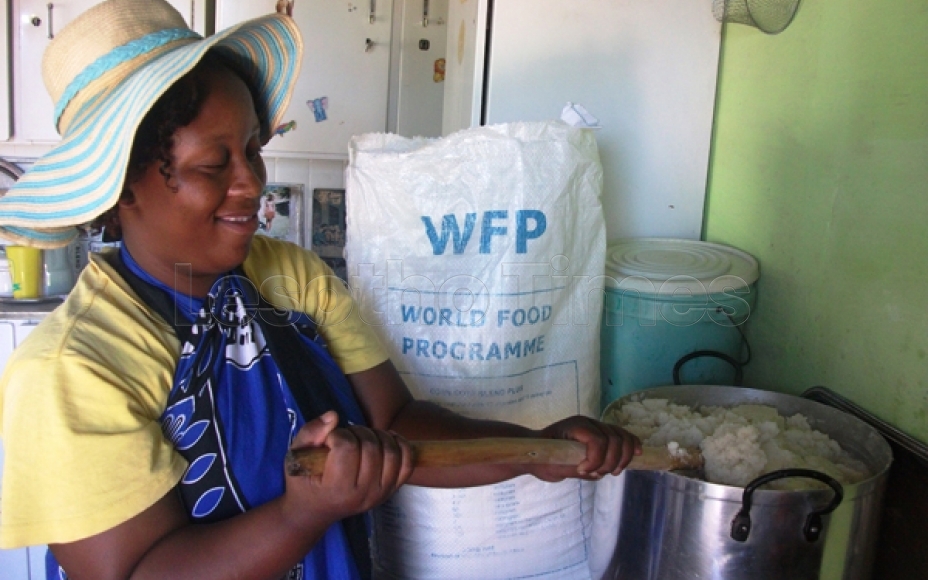Mathatisi Sebusi
THE World Food Program (WFP) has launched a program to feed 580 pre-schoolers in Mohale’s Hoek and Quthing for the next four years to help prevent malnutrition and stunting.
The project, coined as Home-Grown School Feeding Programme, will in the process also empower local small-holder farmers from whom food to be distributed in the schools will be bought.
The WFP has availed financial assistance to the tune of €600,000 (or M12,3 million) from the Principality of Monaco.
The Principality of Monaco’s donation will go a long way in assisting a country like Lesotho, where an estimated 34.5 percent of children under the age of five are stunted.
Speaking at the launch of the feeding programme in Quthing this week, WFP Lesotho Representative and Country Director, Aurore Rusiga, said the project would be piloted in both Quthing and Mohale’s Hoek. Children there would be fed home grown food procured from local smallholder farmers.
She said the farmers would be capacitated to grow quality produce which they would then supply to beneficiary pre-schools.
Ms Rusiga said WFP received the funding of €600,000 (M12.3 million) from the Principality of Monaco. It would be used to exclusively provide meals for the pre-schoolers as well as train smallholder farmers “as part of the national home-grown school feeding activities in Lesotho”.
She added that the project which was first implemented in 2023 would run until 2026.
“Despite Lesotho having made critical strides towards sustainable development, the country faces multiple and overlapping structural and economic challenges ranging from high unemployment, malnutrition that is widespread, with 34.5 percent of children under five years stunted and relentless climate related shocks like drought and above normal rains,” Ms Rusiga said.
She said the already worrying situation was worsened by unstable global food prices that compromised the purchasing power especially of poor households.
Ms Rusiga said those factors had had a negative impact on the country’s food and nutrition security, pushing already poor and vulnerable households into poverty.
“On the other hand, the economy is dominated by agriculture, which is the most important source of employment for majority of people living in rural areas. However, this sector suffers from low productivity and has been stagnant for the last two decades. Majority of people engaged in farming are smallholder farmers who mostly engage in subsistence farming,” Ms Rusiga said.
Additionally, she said the project would link thirty-six Early Childhood Care and Development Centres (ECCD)s with 300 small-scale farmers to provide 580 kids from Quthing and Mohale’s Hoek districts with food that is safe, diverse, local and above all, nutritious.
“Delivering healthy meals to children will promote production and adoption of the right dietary practices thus addressing malnutrition, while stimulating at the same time local agriculture and economies through the procurement of food from local, small-scale producers,” she said.
“The Home-Grown School Feeding programme emerged as an opportunity to improve the livelihoods of smallholder famers and local communities, and to strengthen the nexus between nutrition, agriculture and social protection.”
Quthing and Mohale’s Hoek districts, Ms Rusiga noted, were identified as vulnerable to chronic food insecurity, with poor socio-economic status and high risk of climate impacts, hence, the implementation of the project in those two regions.
The initiative was welcomed by Ministry of Education and Training senior official, Thuto Ntsékhe, who said the school feeding project would help attract and retain children in schools while also offering proper nutrition to children.


